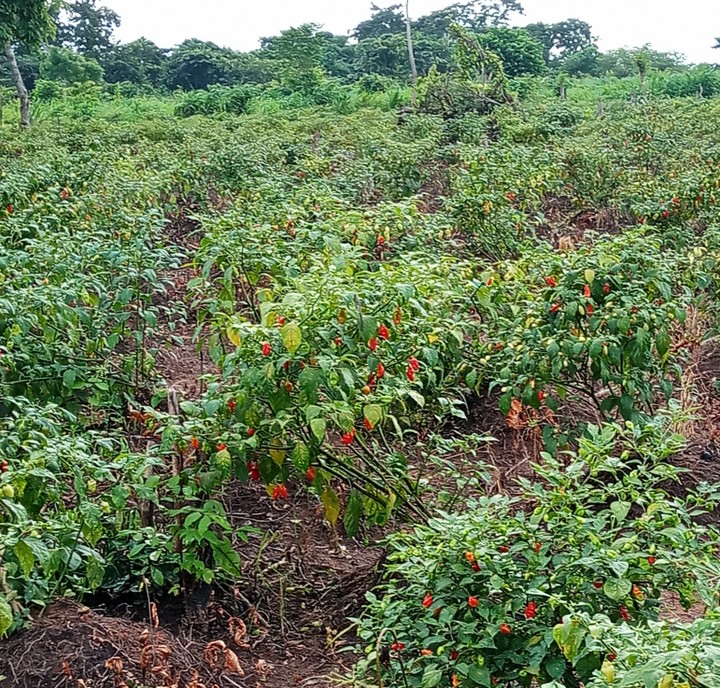Climate change has adversely affected the fortunes of pepper farmers in Bauchi, North East Trust reports.
An irrigation farmer who is into pepper production, Ishaq Mailabu Zango, told North East Trust that many farmers suffered losses from their farms due to flooding and extreme weather caused by climate change.
- How you can be a successful Law graduate – BUK graduate, Fatima
- Electric vehicles charging station debuts in Lagos
“Sometimes when the river overflows into our farms, one has to replant again if seeds are available but in the event that seeds are not available, one has to bear with the situation.”
Zango explained that there are many other factors affecting their production during the dry season but the major challenge they have is recurring flooding.
“The moment we see the sky gets pregnant, (cloud) we have our hearts in our mouths out fear of the unknown. Even this year, I learnt that there is a prediction of possible flood in the state.”
Another farmer who had been practising irrigation along the Gwallaga stream for the past 20 years, Malam Ibrahim Baraza said global warming has already knocked on their doors and gradually crippling production of many agricultural products in the state.
“We use to hear about global warming mostly on foreign media but it has now knocked on our doors. The effect of the climate is fast changing the fortunes of pepper farmers and their families. These ugly trends spelled doom in the coffers of the farmers owing to low and poor yields particularly at this time when the economy bites harder,” he said.
Baraza explained that the nature of the soil on which they have been practising the age-long business has altered from being black fertile to poor sandy soil which is not good at moisture retention.
He said he now spent a lot of money to buy fuel he uses to water his farm at an interval of not more than two days because of the loamy nature of the soil he irrigates.
He also revealed that pests are oftentimes on the spat because the weather has become conducive for them to survive on their pepper leaving them with no option but to expend more resources on pest control through the application of herbicides and pesticides to save what was planted to avoid total failure.
Baraza further disclosed that the climate change had compelled them to change the planting period. “The time at which we plant pepper now is not the same we were planting in the past.
“In those days we used to transplant pepper to the site from the nursery around February but today you cannot dare try that because you will end up wasting your time, energy and resources without getting anything,”

 Join Daily Trust WhatsApp Community For Quick Access To News and Happenings Around You.
Join Daily Trust WhatsApp Community For Quick Access To News and Happenings Around You.


